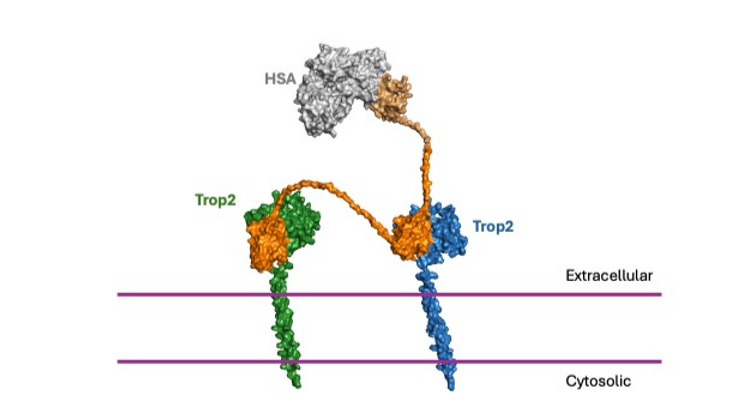
Hanano Technologies is an innovative biotechnology company focused on developing next-generation oncology therapeutics using camelid-derived single-domain antibodies (sdAbs or VHHs). Our platform harnesses the unique biological advantages of camelid antibodies – small size, high affinity, superior tumour penetration, and stability – to create precision-targeted therapies for cancer patients.
Redefining the frontier of cancer therapeutics
ADVANCED BIOLOGICS
PRECISION PAYLOAD ENGINEERING
AI-POWERED DESIGN
We specialise in two key modalities:
1. Antibody-Drug Conjugates (ADC):
We engineer camelid antibodies with potent cytotoxic payloads to selectively target and destroy tumour cells while sparing healthy tissues. The compact size of sdAbs allow for deep tumour penetration and rapid systemic clearance,
enhanceing the efficacy and tolerability of our ADCs.
2. Radiopharmaceuticals:
Using site specific linker-chelator chemistry, we conjugate our sdAbs with diagnostic and therapeuticradionuclides. This enables the creation of highly targeted radiopharmaceuticals for both imaging and treatment of solid tumours with optimised biodistribution and reduces off-target radiation exposure.

AI-driven drug design and optimisation:
At the core of our innovation pipeline is the integration of artificial intelligence (AI) and machine learning (ML) tools. AI accelerates our discovery and development process by:
-
Predicting high-affinity sdAb-antigen interactions using structural modelling and deep learning
-
Optimising conjugation sites for improved payload stability and therapeutic index
-
Modelling pharmacokinetics and biodistribution to refine payload and linker selection
-
Designing next generation candidates with improved efficacy, manufacturability and safety profiles.
Our AI-enabled approach allows us to rapidly iterate, optimise and personalise drug candidates, significantly reducing development timelines. More importantly, this is combined with decades of experience in experimental structural biology, nuclear medicine and nanobody production for clinical use, thereby increasing the probability of success.